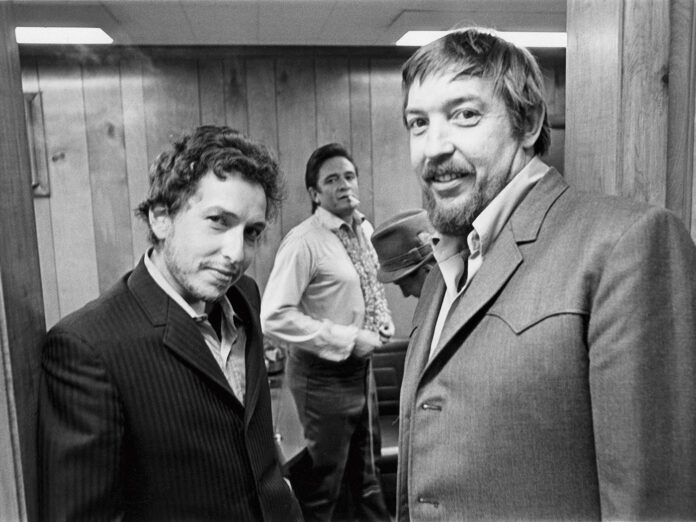Unthinkably, Johnston was changing Nashville.
“He was not afraid of record company executives. He would stay with something til he got it done,” says Charlie Daniels. “It takes a very stubborn, energetic and determined person to do that, and that was what Bob was. He would stay up 24 hours and not give it a second thought.
“He learned his work ethic the hard way, and I don’t mean in the music business,” Daniels continues. “Doing whatever he needed to get by. He learned that if he was going to get something accomplished, he was going to have to not let other people’s opinions deter him from doing it. Bob came up hard.”
The music business is in Bob Johnston’s blood. Both his grandmother and mother wrote songs professionally. Johnston’s mixture of combative and creative, meanwhile, comes from still further back in the bloodline. “I had one great grandfather who was a number 1 Texas ranger,” he chuckles, “and another who was a piano player in a whorehouse.”
Bob’s own experiences in the music business began after a stint in the navy. Drawn to the rockabilly scene, he wrote and recorded (as Don Johnston) a rockabilly hit called “Born To Love One Woman”. However, life as a performer in a time of soft-focus, dreamboat stars was not for him.
“It was embarrassing,” he remembers. “I got a hit record and they got me on the LA waterfront with about 5,000 kids watching. They had Ricky Nelson who looked like about a million dollars. Then they had me. When I went on they were screaming ‘We want Ricky!’ so loud you couldn’t even hear me. I was ten years older than all of them. I looked like shit.”
Johnston made his way, incrementally, to a position out of the public eye. Firstly, as a writer – the day he met Charlie Daniels in 1959 the pair wrote and recorded a song called “Jaguar”. As a producer, meanwhile, Bob began to work with his wife, Joy Byers. Joy wrote songs, and together the pair looked to place them in Elvis Presley movies. With the help of demos made by some of the musicians he would use on his Dylan recordings, like Kenny Buttrey and Charlie McCoy, they landed 22 of them.
While hustling this material in New York, Johnston ran into Bob Mercy, whose string arrangements for Aretha Franklin he much admired. Mercy was looking for songs for Andy Williams – and while Bob had nothing appropriate, the quality of his demos meant he was offered a producer’s job at Columbia.
Mercy’s first assignment for Johnston was a tough one: the once-popular, but long-faded Patti Page. “He started laughing,” remembers Bob. “He said, ‘See what you can do with that old scumbag.’ She was a wonderful lady.”
“They gave him the coldest artist on their roster,” says Charlie McCoy. “But using the contacts that he had made with the Elvis movie people, he found a movie that was in production in need of a theme. ‘Hush Hush Sweet Charlotte’ was a huge hit. It revived her career and meant that he was the new boy wonder at Columbia records. It led directly to him working with Dylan.
“The real genius of Bob Johnston is in his first session,” he continues. “With Dylan or Leonard Cohen, they had the whole concept in their head. The main thing he had to do was keep it rolling. But with Patti Page it was from scratch. He found the song, we recorded it live – we had live strings on the session. To me that was his greatest work.”



